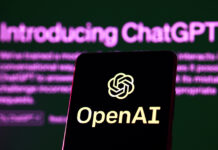By Hervé Legenvre and Erkko Autio
This article is part one of an ongoing series – The AI Power Plays – that explores the fiercely competitive AI landscape, where tech giants and startups battle for dominance while navigating the delicate balance of competition and collaboration to stay at the cutting edge of AI innovation.
Why Meta is Positioning Itself as the Open-Source Champion for Frontier AI Models
The artificial intelligence sector is going through a period of rapid change. At the moment, frontier AI models represent the cutting edge of AI technologies and are pushing the boundaries of what AI can achieve. These models drive advances in natural language processing, computer vision, and other high-impact applications. As Meta is positioning itself as a leader in open-source AI, the question arises: Why is Meta, a tech giant with vast resources, making its most advanced AI models openly available, and what strategic benefits does it gain from this?
The LLaMA Models: Open, but Not Without Limits
Meta’s LLaMA (Large Language Model Meta AI) models, introduced in recent years, have become popular among developers and researchers for their powerful capabilities that rival proprietary models from competitors like OpenAI’s o1and Google’s Gemini. However, while Meta promotes LLaMA models as open-source, there are restrictions. For instance, companies with more than 700 million monthly active users must obtain a special license from Meta to use LLaMA, ensuring that large enterprises cannot freely exploit Meta’s technology without permission.
Despite these limitations, Meta’s decision to release the LLaMA models for the open-source community has been met with enthusiasm. The permissive licensing conditions, along with high performance, positions LLaMA as a great alternative for those seeking advanced AI without the costs associated with proprietary systems.
The LLaMA Models: an emerging open-source dominant model
Following the launch of LLaMA 2 in July 2023, downloads of LLaMA on Hugging Face increased by 10x to nearly 350 million. In August 2024 alone, LLaMA models were downloaded over 20 million times, driven by the release of LLaMA 3.1 405B.
Enterprises such as AT&T, Goldman Sachs, Spotify, Zoom, Infosys and KPMG are now using LLaMA models for their developments. Additionally, many developers access LLaMA through Meta’s partnerships with cloud providers like AWS, Microsoft Azure, and Google Cloud.
But why is Meta so generously open-sourcing such a valuable asset?
Meta’s Strategic Generosity
The answer lies in Meta’s wider strategy: Unlike OpenAI and Microsoft, the company is not primarily looking to monetize access to its LLaMA technology. Instead, Meta leverages AI to enhance its existing products and fuel future innovations. Instead of monetizing LLaMA directly, Meta views its AI technology as a key complement that supports its ability to monetize existing products and services and innovate new ones.
Enhancing Existing Products and Services
Meta’s core businesses, including social media platforms like Facebook and Instagram, and its advertising ecosystem, already rely heavily on AI. From personalizing user experiences to optimizing ad targeting, AI powers the company’s current value propositions. By making its frontier LLaMA AI models openly accessible, Meta ensures that these models are constantly refined by a global community of developers, an open innovation dynamic that ultimately benefits Meta’s own AI-powered products and services.
Pioneering New Products in the Metaverse
In addition to souping up its existing products and services, Meta has embarked on an ambitious vision for the metaverse and invested heavily in its development, though tangible results have yet to fully materialize. However, advanced AI will be critical in powering the interactive, responsive, and intelligent systems needed for immersive metaverse environments. By encouraging widespread use of its AI models, Meta can accelerate the development of technologies that will power its next-generation products, helping it maintain a leadership position in both the metaverse and immersive technology space.
The Advantages of Openness
Meta’s decision to make its frontier AI models open-source offers several strategic benefits.
First, it helps Meta attract, motivate, and retain top AI talent. By positioning itself as an open-source leader, Meta strengthens its reputation within the developer and AI research communities, making it a more attractive workplace for AI professionals. Open-source initiatives foster an environment of innovation and collaboration, significantly enhancing Meta’s ability to recruit and retain top-tier employees. It also provides opportunities to collaborate with external talent who are already familiar with the company’s technologies.
Second, Meta benefits from community-driven innovation. As seen with the success of previous open-source projects of Meta like React or PyTorch, open-source models tend to evolve more rapidly as the global developer community identifies new applications and refines training and fine-tuning techniques. This collaborative approach allows Meta to tap into a vast pool of expertise and creativity, helping the company maintain its leading position in the competitive AI race.
So, while Google increasingly leans towards a closed-source approach, Meta further solidifies its role as a “white knight,” making life easier for developers and academics who rely on accessible AI tools. For academics, many of whom prefer solutions they can use freely regardless of their institution, Meta’s open-source models are especially appealing—allowing them to continue their work even when moving between universities or research centres.
By embracing openness, Meta benefits from a global community contributing to the development of AI systems while still retaining control over the most commercially valuable applications.
Conclusion
Meta’s positioning as an open-source champion for frontier AI models is not purely altruistic. By making LLaMA models openly accessible, Meta fosters an ecosystem of innovation that directly feeds back into its own development, benefiting both its social media and advertising businesses as well as its metaverse ambitions.
In an industry where access to talent, innovation, and speed are critical, Meta’s open-source strategy enables it to achieve all three while keeping its AI advancements at the cutting edge. The foundations of digital technologies are reinvented every few years—with the shift to mobile, cloud solutions, and now AI as a core foundation for digital infrastructure.
By embracing openness, Meta can ride the wave of a growing community of innovators and developers, maintaining its position at the forefront of technological advancement. By leveraging openness, Meta is positioning itself to remain a dominant force in AI, not by charging for access to its models, but by reaping the long-term rewards of a global community that advances the very technologies Meta seeks to capitalize on.
Coming next in the AI Power Play series:
- Why is OpenAI is so closed?
- Google and AI: The Tech leader that had a perfect AI plan till November 2022
- Why most Tech companies want to collaborate with Hugging face?






































